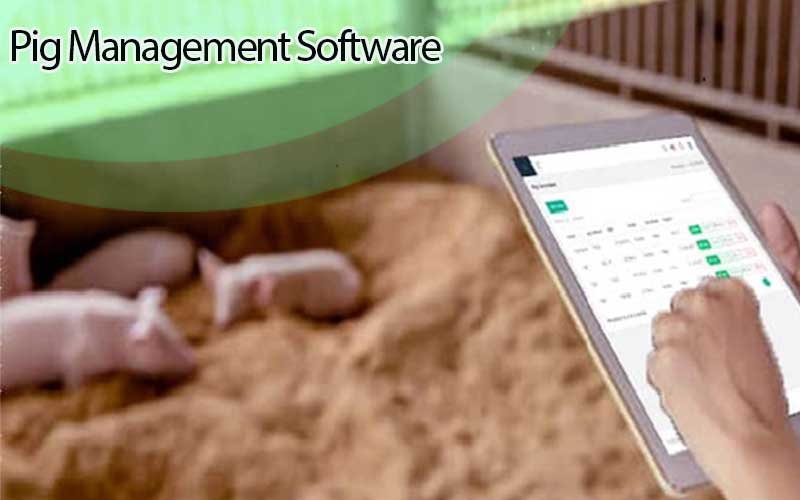The Complete Guide to Hiring and Training Effective Pig Farm Managers
Finding the right pig farm manager can make or break a pig farming business. A well-trained, dedicated manager ensures that the farm runs smoothly, productivity remains high, and animals receive the best care possible. On the other hand, a poorly selected or untrained manager can lead to financial losses, low employee morale, and even legal trouble due to non-compliance with farming regulations.
Hiring and training a pig farm manager is not just about filling a position; it's about investing in someone who will take ownership of the farm's success. Whether you are a seasoned pig farmer or an investor looking to build a profitable pig farming enterprise, this guide will show you how to attract, train, and retain an effective farm manager who can optimize operations and keep your business thriving.
Understanding the Role of a Pig Farm Manager
A pig farm manager is responsible for overseeing every aspect of farm operations. This means ensuring that the farm's pigs are healthy, workers are efficient, and business objectives are met. The role is demanding and requires a mix of technical knowledge, leadership skills, and business acumen.
One of the primary duties of a farm manager is supervising farm workers. This includes hiring, training, and scheduling employees to ensure the farm functions efficiently. A good manager understands how to motivate workers, set performance expectations, and address any issues that may arise on the farm.
A critical part of the role is animal welfare. The manager must ensure that pigs receive proper nutrition, veterinary care, and housing conditions. This involves monitoring feeding schedules, recognizing signs of illness, and implementing disease prevention measures. For instance, if pigs show signs of respiratory infections, an experienced manager knows to isolate the sick pigs and call a veterinarian to prevent an outbreak.
A farm manager also needs to be well-versed in modern pig farming technologies. Many successful pig farms use automated feeding systems, climate-controlled barns, and data-driven health monitoring tools. A knowledgeable manager ensures that these technologies are used effectively to increase efficiency and reduce waste.
Essential Skills and Qualifications to Look For
Hiring the right farm manager means knowing what skills and qualities to prioritize. Experience in pig farming is an obvious requirement, but a good manager also needs problem-solving abilities, leadership skills, and a keen business sense.
Strong leadership skills are crucial. A farm manager must be able to direct and inspire a team of workers, ensuring tasks are completed correctly and efficiently. For example, during peak farming seasons such as farrowing (pig birthing), a manager must coordinate farmhands to provide extra care for pregnant sows and newborn piglets.
Knowledge of pig health and nutrition is also essential. A skilled manager understands the importance of providing the right feed at different stages of a pig’s growth. They should be able to assess the quality of feed and make dietary adjustments if pigs show signs of malnutrition or slow weight gain.
Another key qualification is record-keeping. A professional farm manager should maintain accurate records of feed consumption, breeding schedules, health treatments, and overall farm productivity. This data helps in making informed decisions about farm operations and identifying areas for improvement.
A background in agricultural sciences or livestock management is an added advantage, but practical experience is just as important. If a candidate has spent years working on a farm but lacks a formal degree, they can still be a strong contender for the role.
Where to Find the Best Candidates
The best farm managers don’t always come from job postings alone. Sometimes, they are found through industry connections, agricultural training institutions, and local farming communities.
Agricultural universities and technical colleges often have graduates specializing in livestock management who are looking for practical experience. Attending job fairs at these institutions can help connect farm owners with potential hires.
Professional farming networks and associations are also great places to find experienced farm managers. Many pig farming cooperatives and trade groups have job boards where qualified candidates actively seek new opportunities.
Referrals from other farmers can be a goldmine. If a neighboring pig farm has a great manager who is looking for a new challenge, a direct recommendation can help in securing a reliable hire. Many successful farm owners rely on word-of-mouth referrals rather than traditional job advertisements.
For larger commercial pig farms, recruitment agencies specializing in agricultural employment can help identify top-tier candidates with proven experience.
The Hiring Process: Key Steps
Hiring the right manager is a step-by-step process that involves defining expectations, interviewing candidates, and assessing their skills practically.
The first step is creating a clear job description. This should outline specific responsibilities, required qualifications, expected salary, and any benefits offered. When writing a job description, include details such as the number of pigs on the farm, the type of breeding system used, and whether the farm is focused on meat production or breeding stock sales.
During interviews, ask questions that assess both technical knowledge and leadership abilities. For example, instead of simply asking if a candidate has experience in pig health management, present a scenario: "If a pigpen suddenly has multiple pigs showing signs of illness, how would you handle the situation?" Their response will reveal their decision-making process and crisis management skills.
Practical assessments are also crucial. A strong candidate should be able to demonstrate knowledge of farm machinery, pig handling techniques, and biosecurity measures. Some farm owners arrange for a trial period where candidates work for a few weeks before making a final hiring decision.
Training and Development for New Managers
Even experienced managers need proper training to align with the farm’s specific procedures and goals. A well-structured training program helps new hires adapt quickly and perform effectively.
During onboarding, introduce the manager to the farm’s existing staff, routines, and infrastructure. Provide detailed farm operation manuals, safety protocols, and biosecurity guidelines. A walk-through of the farm, highlighting key areas such as feed storage, breeding areas, and veterinary stations, helps the manager get familiar with the setup.
Continuous learning is essential. Arrange workshops on new farming techniques, pig health innovations, and modern breeding practices. Some of the best farms invest in sending their managers to livestock conferences where they can learn from industry leaders and network with other professionals.
Retaining Skilled Farm Managers
Keeping a good manager on board is just as important as hiring one. One way to retain skilled managers is by offering competitive salaries and performance-based bonuses. When a farm manager knows their efforts are recognized and rewarded, they are more likely to stay committed to the job.
Providing opportunities for career growth is another effective retention strategy. Encourage farm managers to take on larger responsibilities, such as overseeing farm expansion projects or managing financial budgets. A farm that invests in its managers' career growth benefits from long-term loyalty and improved efficiency.
Work-life balance also plays a role. While pig farming can be demanding, allowing managers to have scheduled breaks and reasonable working hours prevents burnout. Some farms offer additional perks such as housing accommodations and transport allowances to make the job more attractive.
Conclusion
Hiring and training an effective pig farm manager is a strategic investment that directly impacts a farm’s profitability and sustainability. By selecting the right candidate, providing thorough training, and creating a work environment that fosters growth and motivation, farm owners can ensure long-term success.
For investors looking to establish a pig farming business, the manager is the backbone of the operation. Taking the time to hire wisely and build a strong management foundation is the key to running a productive and profitable pig farm.




